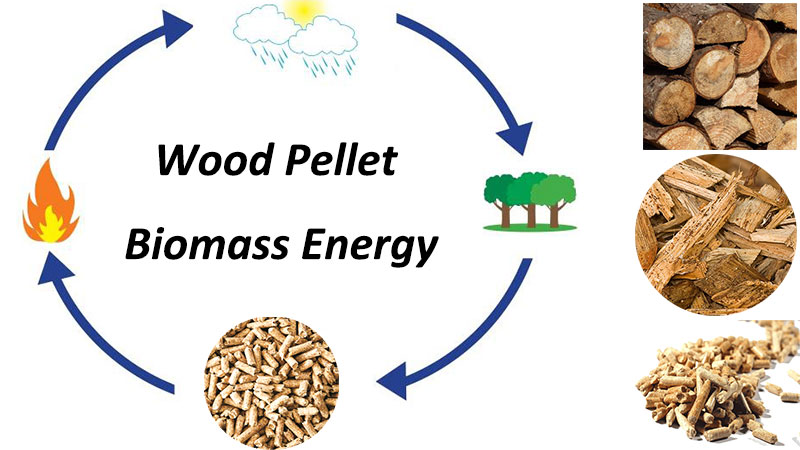
Biomass is a renewable energy source that can be used to generate electricity, heat, and transportation fuels. Biomass pellets are a form of biomass that is compressed into small, uniform-shaped and sized pellets.
Biomass pellets have several advantages over other forms of biomass, including:
- Higher energy content, which helps to reduce transportation and storage costs.
- Compact size, which makes them easy to transport and use.
- The ability to be used in a variety of applications, from residential heating systems to power plants.
According to the International Energy Agency (IEA), global biomass pellet production increased from 10.6 million tonnes in 2000 to 54.5 million tonnes in 2022. It is projected that biomass pellet production will continue to grow in the coming years, reaching 75.3 million tonnes in 2025 and 108.3 million tonnes in 2030.
Potential of biomass pellets in Vietnam
Vietnam is a country with great potential for biomass, with abundant sources from planted forests, agriculture, and industry. According to a report by the Ministry of Industry and Trade, the national biomass production is estimated to reach 3 million tonnes per year. Of these, biomass from planted forests accounts for about 1 million tonnes per year, biomass from agriculture accounts for about 1.8 million tonnes per year, and biomass from industry accounts for about 2 million tonnes per year.
Biomass pellets can be used to replace fossil fuels in heating, cooking, and power generation applications. In Vietnam, biomass pellets have been used in heating and cooking applications in households and businesses. However, the use of biomass pellets in power generation is still limited.
Challenges facing biomass pellets
Despite its potential, biomass pellets also face a number of challenges, including:
- The cost of producing biomass pellets is still higher than fossil fuels.
- The biomass pellet production technology is not yet fully developed, leading to uneven biomass pellet quality.
- The competitiveness of biomass pellets in the market is still limited.
Solutions for the development of biomass pellets in Vietnam
To develop biomass pellets in Vietnam, the following solutions are needed:
- Reduce the cost of producing biomass pellets by researching and developing new, more efficient production technologies.
- Improve the quality of biomass pellets by strictly controlling the quality of raw materials and production processes.
- Increase awareness of the benefits of biomass pellets among the public and businesses.
With its potential and challenges, biomass pellets could become an important renewable energy source in Vietnam in the future. However, for biomass pellets to be competitive with fossil fuels, there needs to be a coordinated, effective approach from the government, businesses, and the public.
Some applications of biomass pellets
Biomass pellets can be used in a variety of applications, including:
- Heating systems: Biomass pellets can be used in residential, commercial, and industrial heating systems.
- Cooking: Biomass pellets can be used in barbecues, ovens, and rice cookers.
- Power generation: Biomass pellets can be used in biomass-fired power plants.
- Transportation fuels: Biomass pellets can be used in internal combustion engines and diesel engines.
Conclusion
Biomass pellets are a renewable energy source with great potential. In Vietnam, biomass pellets can be used to replace fossil fuels in heating, cooking, and power generation applications. To develop biomass pellets in Vietnam, there needs to be a coordinated, effective approach from the government, businesses, and the public.
Source: Overc synthesize, analyze and write articles